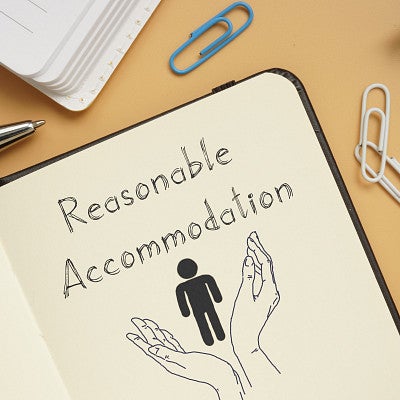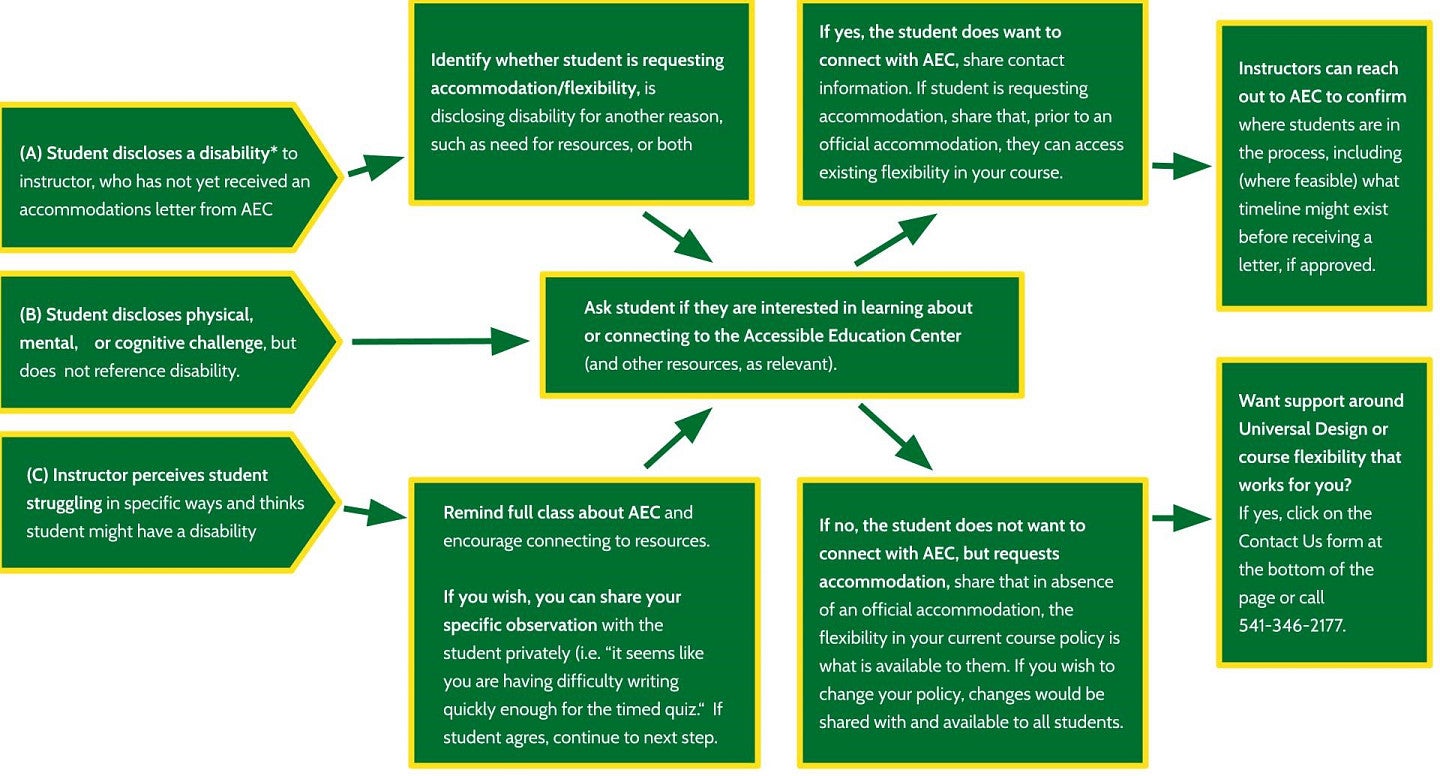At the University of Oregon, the Accessible Education Center is the authority for guidance regarding academic accommodations.
characterizing accommodations (& disability)
Academic accommodations provide "an alternative way to accomplish the course requirements by eliminating or reducing disability-related barriers" according to the APA. "They provide a level playing field, not an unfair advantage." Accommodations are protected under federal civil rights law and provided at UO through the Accessible Education Center (AEC); receiving an accommodation letter through AEC activates your legal responsibility.
Disability is defined by the ADA as "a physical or mental impairment that substantially limits one or more major life activities." Disability is situational, may be permanent or temporary, and is an important part of human diversity and identity. It can include mental health conditions, which a significant portion of UO student experience (UO Healthy Minds Survey, 2021).
Disability is part of the experience and identity of many students, and many students have their disability diagnosed while at UO. At the University of Oregon, 25% of first years and 28% of seniors identify as having at least one disability (NSSE, 2022).

characterizing "reasonable"
AEC states that "a reasonable accommodation should not result in the lowering of academic standards or an alteration of the fundamental nature of a course or program."
Accommodations would not be reasonable if they:
- fundamentally alter the nature of a program
- lower or substantially modify academic or program standards
- impose undue financial or administrative burden
- pose an appreciable threat to personal or public safety
AEC specifies that "it is never appropriate [for an instructor] to deny a requested accommodation without documented consultation with AEC. A denial should only be made after careful consideration by qualified professionals who are knowledgeable about disability and specific legal implications." Contact them at uoaec@uoregon.edu if you have concerns about the whether an accommodation is reasonable.


